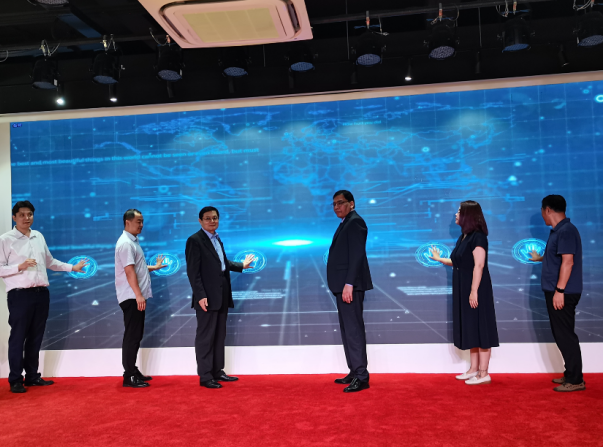SHANGHAI, July 7 – “The New Energy Vehicle sector is one of the most promising areas of China-Pakistan cooperation. Chinese businesses are invited to invest in Pakistan’s new energy vehicle industry to benefit from a large and growing market, as well as the incentives provided by the government,” highlighted Hussain Haider, Consul General of Pakistan in Shanghai.
The China-Pakistan Electric Vehicle Industry Technology Service Cooperation Forum, hosted by the Consulate General of Pakistan in Shanghai and the ICT Belt and Road Union, took place on July 5. Deputy Consul General of Pakistan in Shanghai, Nawab Ali Rahoojo, moderated the session.
To mark the 10th anniversary of CPEC, the CPEC Industry Chain Cooperation Platform was simultaneously launched. The platform aims to build a comprehensive service system covering key industrial cooperation areas like new energy, intelligent manufacturing, and the digital economy between China and Pakistan. Its main goal is to address information asymmetry, enhance international integrity, and promote practical cooperation to aid the China-Pakistan Economic Corridor in reaching a higher level of development.
In her opening remarks, Zhao Baige, Vice Chair of the 12th NPC Foreign Affairs Committee of the People’s Republic of China, noted that new energy vehicle technology has become an essential track for the fourth industrial revolution. She stated that the growth of the new energy vehicle industry requires supportive policies and production.
Zhao shared that China has been the world’s largest producer and seller of new energy vehicles for eight consecutive years, with sales increasing over a thousand-fold from less than 6,000 in 2011 to 6.887 million in 2022. After over a decade of development, China has established policy systems to support the rapid development of new energy vehicles in areas like development planning, consumption subsidies, hedging policies, research investment, government procurement, and standard formulation.
Usman Ali, Manager (Policy), Engineering Development Board (EDB), Ministry of Industries & Production, Pakistan, presented on the incentives for electric vehicles in Pakistan under the Auto Industry Development & Export Policy (AIDEP). He stated that the policy includes incentives for electric vehicles such as 2-3 wheelers, cars, SUVs, buses, trucks, etc. To promote EV manufacturing in Pakistan, the import of charging infrastructure attracts a 0% custom duty, and there is a 1% custom duty on EV-specific parts. The government also subsidizes registration fees for electric vehicles in all provinces.
Usman noted that Chinese brands such as Chery, MG, BAIC, DFSK, Chang’an, GWM, FAW, Foton, and others are already operating in Pakistan and are popular among the masses. China is leading the development of key technologies for electric vehicles, and Pakistan welcomes the investment of Chinese electric vehicle enterprises, as well as accelerating the roll-out of China-Pakistan new energy vehicle industry cooperation.
Nearly 100 representatives from China and Pakistan’s new energy, technology, and transportation industries, industrial chain parts and components manufacturers’ associations, and leading design and manufacturing enterprises, participated in the forum through on-site and video connections.
















